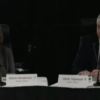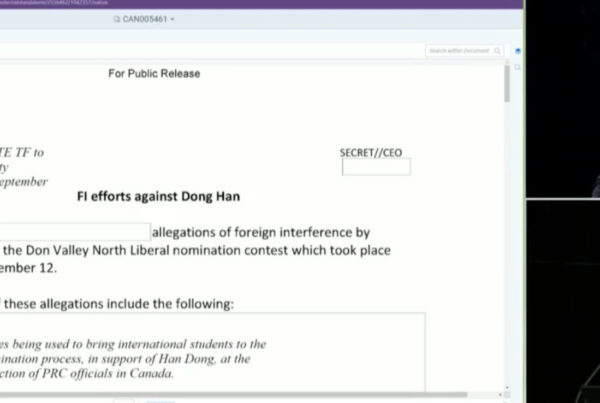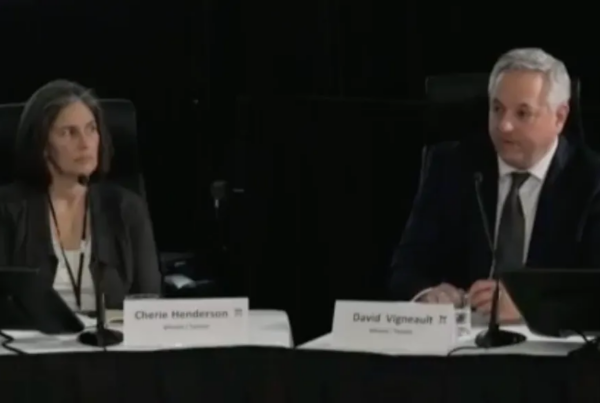Introduction
After 11 September 2001, the majority of the EU stood up to be counted and gave their immediate and unconditional support to the US. NATO invoked Article 5, its collective defence Article, for the first time in its history. The transatlantic alliance has risen to the challenge of international terrorism and proved itself to be a fundamental cornerstone of international security.
This unwavering support has been maintained ever since and throughout the campaign in Afghanistan until the US announced its intention to use the use of force to ensure the disarmament of Iraq.
The Transatlantic Alliance
A general perception exists that the issue of war against Iraq has opened a massive rift between the US and Europe. Giant anti-war demonstrations, public opinion polls and the behavior of key powers seem to confirm this view, but the reality is actually much more complicated — and very different.
The majority of European governments support the US on the Iraq issue. Though public opinion certainly opposes war, the European populace also is extremely concerned about Europe’s economy, issues of national sovereignty and the effect of French and German power over both.
Governments generally have chosen to side with the US, not because they are suicidal, but because they understand that on election day, the Iraq war will be a side issue and the power of the Franco-German bloc will be a central issue. The US is much less isolated in relation to Europe than is generally believed.
The first half of the 20th century was a time of unprecedented savagery in European history. The main cause of this problem was the uni-lateral pursuit of national self-interest.
Multi-lateralism being the creation of multi-national institutions and a multi-national mode of thought this unfortunately continues to be the Europeans’ response to their history.
The US has a very different history and a very different set of fears. The US has no historical reason for fearing its own nationalism, but it does have reason to fear inaction. The U.S. need to deal with Islamic radicalism is colliding with the European fear that the shattering of multi-lateralism will release the demons of nationalism.
The strains of these old international systems are beginning to splinter under the weight of the new realities of terrorism. Many countries are expressing substantial anger at the US and fear of the future, particularly over the coming war with Iraq. Underlying all of this, however, was the belief that ultimately there was nothing broken that could not be repaired.
From the U.S. point of view, World War I and II were exercises in European savagery; it fell to the US to save Europe from itself.
However, the US never saw itself as responsible for Europe’s disease, nor did it see itself as susceptible to it. Americans believed that the Europeans would not behave as civilized human beings unless they were forced into institutions that limited their sovereignty and behavior.
From the US perspective the lessons of the 20th century were precisely the opposite: The US could be trusted to behave responsibly without institutional constraints. During the Cold War, an American might argue, nuclear holocaust was prevented precisely because the US unilaterally managed its nuclear strategy. Had the European statesmen of 1914 or 1939 had nuclear weapons, or had the weapons been held multi-laterally, a nuclear holocaust might have followed.
The current EU alliance structure has two purposes:
- to facilitate the effective defense of the West
- to create a framework for controlling European excesses.
The alliance now is hindering rather than facilitating defence and, one would hope, the Europeans are sufficiently mature to restrain themselves within their own multi-lateral systems.
NATO’s consensus system should not be permitted to impede U.S. war-making strategy, particularly when it permits countries that commit and risk little or nothing to control the US, which is committing and risking much.
Currently, the Spanish government is fully supporting the US position, and the Italian government is close to supporting the US. Most of Eastern Europe is siding with the US. And of course the British government stands with the US. Germany and France do not speak for Europe; they speak for themselves in a deeply divided Europe.
Many Americans also oppose President George W. Bush’s policies, and many Europeans oppose the Franco-German position. But this is more than a question of public opinion at any given period. The fact is that, at the deepest intellectual and moral level, a divide is opening between Europe and the US. And with that gap, the entire edifice of the post-War alliance structure is cracking apart.
From a practical point of view, we can already see the shifting alliances. What Turkey, Saudi Arabia or India does has a direct, potential effect on the US. What Germany or France does really doesn’t matter that much in a practical sense. Geography defines interests, and the geography of Europe has little to do with contemporary U.S. interests and fears in 2003. The Fulda Gap is infinitely less important than the Shatt al-Arab to the US.
It is all too easy for Europeans to take Europe’s freedom for granted. That freedom would not exist today without America’s support throughout the last century. It was the US that helped defend European democracy in two World Wars. It was the US that, through the Marshall Plan, saved Europe from post-War collapse. It was the US that encouraged European reconciliation and integration, and it is successive US administrations that have given Europe unwavering support ever since.
As President Bush said in Poland in June 2002, ‘When Europe and America are divided, history tends to tragedy. When Europe and America are partners, no trouble or tyranny can stand against us’. We showed this lesson to be true in the darkest years of the 20th century, and it remains true in the 21st. The transatlantic alliance remains strong, OR DOES IT?
NATO
The future of NATO is at risk if the allies fail to confront Iraq. Effectively, the NATO alliance is breaking itself up because it will not meet its responsibilities.
The US does not want to sink NATO, but they are signaling to France and Germany that their position — blocking even planning for the defense of Turkey in the event of war — has created a crisis of unprecedented proportions. The US obviously hopes that by forcing them to face the abyss, they may pull back. The US is also signaling that the US has no maneuvering room on the subject.
From the US perspective, NATO might have outlived its usefulness.
The European Question
The Iraq crisis has redefined relations between the US and Europe. It also has redefined relations within Europe, where the desire to build a transnational entity has encountered the desire to build a Europe that is a great power. The Franco-German entente driving European unification now has encountered the deep suspicion with which others view France and Germany. In many ways, Iraq can be said to have marked the end of European innocence.
One of the unintended consequences of the American obsession with Iraq is that it has raised the question of Europe in striking and unexpected ways. It has been said that the U.S. relationship with Europe will not be the same after the Iraq experience. In a similar and connected sense, it would seem that Europe’s relationship with itself will never again be the same.
Presently, France and Germany have cast themselves as the decision-makers. That they might find a common basis for shared sovereignty might well be a historic achievement, but it is not necessarily comforting to lesser nations expected to align themselves with those decisions.
The Iraq issue has crystallized the European problem. The idea of a transnational Europe is, in principle, desirable. The practice of a transnational Europe federalized into a system dominated by France and Germany is not.
This is not merely an immediate, practical problem — it is a deeply felt historical problem. Neither France nor Germany is trusted to put European interests ahead of their own — nor is it clear, in a practical sense, that there is such a thing as a European interest.
What they discovered was that much of Europe didn’t trust them to pursue a European course. They are standing with the US not because the US is right, but because they did not want the French and Germans to become too powerful.
It appears that the French and German leaders are trying to use the concept of Europe to limit US power. Much of Europe has sought to limit French and German power by standing with the US. None of this really had anything to do with Iraq. All of it had to do with the fact that it is easier to say that European interests had transcended national interests than it is to actually transcend them.
Usama bin Laden could never have calculated that the events of 11th September would unite the whole world in horror and bring together an unprecedented international coalition against terror.
New prominence has been given to the role of international bodies, not least the European Union.
Co-operation with the EU is a key element in guaranteeing security against terrorism.
The EU enables the US to combine and co-ordinate a joint response to terrorism in fields as varied as foreign affairs, law enforcement, terrorist financing and aviation security. In future, the EU will also assume a limited military role, complementary to NATO.
The Detractors
For France, the time since the end of the Cold War has been a bad dream. The time since Sept. 11, 2001, has been an utter nightmare.
France’s behavior is inherently contradictory. On one side, it wants to build an anti-US coalition.
On the other side, coalition building simply on the basis of national self-interest is hard when dealing with a power the size of the US.
France wants to build a concert of nations in which its own national sovereignty is guaranteed and its right to pursue its national interests is recognized.
France is behaving in a completely predictable fashion. It will resist the US vigorously, seeking to limit its global power. It will seek to build coalitions with other nations. However, because it reserves the right to pursue its own national self-interest, the coalitions tend to dissolve — leaving France to face the US impotently or to pursue its national self-interest and make its peace with the US.
France’s operational pattern is to resist anything that impinges on its understanding of its own national interest. The problem is that its national interests cannot be achieved alone, and therefore it requires accommodation. Its national interest is torn between resistance and accommodation. This creates a pattern that is unsettling to all concerned. The Iraqis, who thought they could rely on France, will be surprised that France, in the end, ultimately will prove to be an ineffective defender.
The US, which sees France increasingly as an adversary, will be bemused as the country realigns itself and eventually claims — and indeed will believe — that it has always been in the last position it occupies.
For France, Iraq represents two national interests. First, it has direct national interests in Iraq — oil, defense and other markets. Second, and more important, France understands that a U.S. occupation of Iraq would shift the global balance of power even more in the favor of the US.
It is interesting to note that two of the main detractors in the Iraqi argument, France and the Former Soviet Union (FSU) have already signed multi-billion oil contracts with the present Iraqi government. Contracts that might not be honoured if the US invades Iraq and takes control; of the Iraqi oil fields.
It is therefore in the French national interest to resist. At the same time, all-out resistance is impossible. By the nature of its foreign policy, France finds it difficult to hold together coalitions. Standing alone, France cannot resist the US, nor can it resist a rupture with the US.
France will resist the US with all of its might — but recognizing the limits of its might, it ultimately will capitulate, formally or informally. France will carry out its policies on multiple levels — opposing on one, cooperating on another. It will appear to be treacherous, as the current term would have it, but it is simply torn in multiple directions, torn by competing geography, dreams and nightmares. France will move very quickly in many directions during any crisis. In the end, it will wind up where it began. France appears insufferable, but it is merely trapped by geography and history.
EU’s Role in the War on Terrorism
Many of the EU countries have offered military contributions and other practical back up. Britain deployed ground troops to Afghanistan. France, Spain, Italy and Belgium have all made substantial offers of support. And Germany is also mobilizing its forces, a truly historic decision and the first deployment of German troops outside Europe since 1945.
The EU also contributed $500million US of humanitarian aid to Afghanistan. This will help both those in immediate need as a result of the conflict, and build a new Afghanistan once the conflict is over.
Through its unwavering solidarity with the US since 11 September, the EU is emerging through this crisis as a force to be reckoned with on the global diplomatic stage. It has earned the right to be taken seriously in Washington and the rest of the world.
The EU’s Military Contribution to Global Security
The US and the EU have been working to ensure that the EU can offer a greater military contribution to global security than it can at present.
The EU is currently developing a new EU defence capability under the European Security and Defence Policy, ESDP for short. This will allow the EU to perform crisis management operations such as peacekeeping, humanitarian and rescue missions in future, where NATO as a whole is not engaged. The goal being for EU Member States to be able to deploy collectively, by the end of 2003, up to 60,000 troops within 60 days and keep them so deployed for at least a year.
A stronger EU defence policy will allow Europe to pull its weight in military terms and make a greater concrete contribution to global security.
The EU’s Anti Terrorist Measures
- Following 11 September, the EU has acted with unprecedented speed to ensure that neither terrorists, nor their funds can find any hiding place in Europe, and to ensure the safety of Europe’s airlines.
- Within 10 days of the attacks in the US, EU leaders had agreed an action plan to fight terror across Europe and beyond. That plan is based on closer co-operation among the EU’s member states themselves and closer co-operation with the US. The EU candidate countries are also keen to associate themselves with these measures.
- EU Justice and home affairs ministers have agreed a common definition of terrorism in each member state’s laws, which will put an end to the days when terrorists could avoid justice through legal loopholes;
- The EU is currently working to get agreement on a European arrest warrant, which will ensure that there is nowhere for terrorists to hide in Europe;
- The EU is also working to introduce legislation for quicker freezing of assets and seizure of evidence, through mutual recognition by each member state of each other’s court orders. This will ensure terrorists will no longer be able to hide the funds that bankroll their campaigns, or the evidence that will convict them.
- EU has also agreed further measures to chase terrorist funds. These include, for example, increased information exchange between financial intelligence units, and a commitment to sign and ratify as a matter of urgency the UN Convention for the Suppression of the Financing of Terrorism.
- The EU is also seeking to improve intelligence sharing between member states, so that all our eyes and ears are united in tracking and pre-empting any planned terrorist action. They have also moved to strengthen EU-US security co-operation, through a new proposed intelligence-sharing agreement between Europol (the EU’s police intelligence body) and American law enforcement authorities.
- The EU has also moved to improve aviation security and restore the confidence of the flying public.
In October 2003, the EU transport ministers initiated a package of measures to improve airline safety. These include common rules on banned weapons, improved crew training, stricter luggage checks, protected cockpit access and the introduction of ‘Sky Marshals’. These stringent measures – many of them already in place in the UK – will ensure a high level of security for passengers wherever they fly in Europe.
Conclusion
The war on terrorism will not be won by military action alone. Nor will it be won just with enhanced extradition arrangements. Nor will it be won just with improved airline security – important though all these elements are.
The war on terror will need to be fought and won on numerous fronts, including diplomatic, military, security, judicial, political and humanitarian. And, like a game of three-dimensional chess, the challenge is to co-ordinate all these elements at once.
By allowing the EU to undertake certain operations where NATO chooses not to, the European Security and Defence Policy will mark a further move away from a declaratory EU foreign policy and strengthen the EU’s credibility in foreign affairs.
This enlargement will, hopefully, reunite Europe after the bitter divisions of World War Two and the Cold War. And it will extend stability right across Europe, cementing transatlantic solidarity all the way from Washington to Latvia – and possibly even further.
Public perception is, a battleground. The ultimate failure has been that the Bush administration in focusing on its combat with France and Germany, Washington somehow lost the ability to communicate the European reality. Part of the reason, is that the administration itself underestimated the breadth of its support and, therefore, was unable to articulate it.
However, the fact of the matter is that support for the US, particularly in Europe, is much greater than most people recognize. It has very little to do with the merits of the case and less to do with any interest in Iraq. It has to do with European geopolitics and a built-in fear of Franco-German domination.
The unwavering solidarity across the Atlantic Ocean is the chief weapon in the war on terror. Its strength has proved irresistible thus far. It is crucial that it is maintained, and the UK used as a transatlantic bridge between Europe and the US – has a powerful role to play.
Events will shortly overtake ALL the rhetoric.








